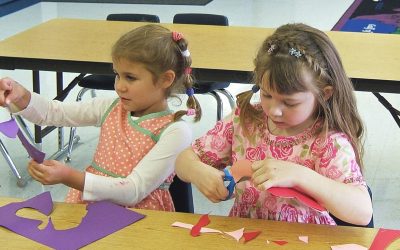Parents typically want to encourage their children’s creative expression. However, uncertainties and misconceptions about creativity abound. Here are two questions that merit thought and discussion—along with ideas so parents can foster kids’ creativity to the fullest.
Parents may know what fuels their children’s creativity, and regularly chat with them about how to fortify the imagination—including where to look for inspiration, who to ask for ideas, and how to use ideas productively. In fact, many parents do a really great job of this! Nevertheless, unanswered questions and misconceptions about creativity sometimes get in the way of parental understandings, support, and encouragement. Have a look at the two questions about creativity that follow here, and the discussion points and suggestions for parents that accompany each one.
Question #1. Does creativity derive from impulsiveness?
Answer: Sometimes creativity does occur spontaneously like a sudden spark or an unanticipated flash of light. And when that happens, it’s wonderful and invigorating, and can lead to exciting discoveries. However, creativity also evolves over time, and it’s predicated on effort and prior knowledge. A child’s knowledge base provides the foundational building blocks for developing ideas, plans, and new ways of thinking.
Expressing creativity often takes the form of playfulness. Indeed, when creativity starts flowing it can certainly be enjoyable, gratifying, and entertaining. However, creative output is not necessarily about engaging in frivolity. It’s frequently time-consuming, even painstaking work, involving overcoming challenges, taking risks, finding resources, and being persistent. New horizons can even be scary, especially for kids. Creativity is something people decide to nurture—it’s a decision—and this sometimes requires courage, determination, and conviction. Creativity derives from what is original, meaningful, and effortful.
What can parents do? Talk with children about how it’s good to be imaginative, reiterating that creative activities can be lots of fun, and that it’s great to be spontaneous, and to play with ideas! However, indicate, too, that creativity is multifaceted, and that there are practical and even serious sides to it. Help kids understand that creative effort requires time and commitment, but it’s worth it. Parents can talk about their own accomplishments that have come about as a result of investing creative energy. For example, they can reveal personal successes or productive outcomes they’ve achieved through creative thought and purposeful action, or describing how famous “others” have prevailed (such as Disney, J. K. Rowling, and those in fields of endeavor that are of particular interest to the child). Encourage kids to ask questions, seek answers, think things through, be inventive, stay open-minded, and exercise patience.
Question #2. Does creativity come from within?
Answer: Creativity is everywhere—kids’ surroundings are comprised of countless influences, such as the myriad sounds they hear, the nuances of light and color they see, or the original combinations of flavors they taste on any given day. Because creativity is all around us, and because it pervades every domain, it seeps into kids lives, spurring their thoughts, and influencing their behavior and responses. Yes, creative expression may come forth from within the child like a wellspring, in the form of original art, music, movement, words, or other means.
But …








